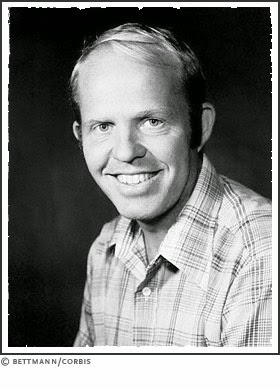In class today we held a moot court for the Board of Regents of the University of California Davis v. Bakke Supreme Court case. This case was a landmark decision that upheld affirmative action but disallowed the use of quotas. Quotas were used by many schools, in particular the medical school at the University of California Davis, where they designated 16 out of 100 seats for African American Students. These quotas were the result of the effort from universities to ensure they integrated their student body. Yet, according to Bakke and later supported by the Courts decision, these quotas violated the equal protection clause of the Fourteenth Amendment by singularly using race as a determining factor in the acceptance of a student. The intent of the quotas were just, yet their application became unjust because they discriminated against those who weren't minorities.
I enjoyed listening to the arguments presented by the litigation groups. It's always interesting to see how my peers will develop their arguments and go about working the case. I think that the defense had a rough time against the attacks of the prosecution mostly because the prosecution had the force of the law behind them. All in all I agree with the courts decision and believe that race should be one of the factors in determining acceptance but not the sole factor. Allowing an admissions council to deny someone solely on the basis of race can lead to the acceptance of less qualified candidates simply because they aren't white, as was the case with Bakke.
Thursday, April 23, 2015
Wednesday, April 22, 2015
Klansville USA
 North Carolina, a widely known progressive state in the South, rarely experienced the violence of the Civil Rights Era that their neighbors had. Yet the state of North Carolina had more members of the Ku Klux Klan living within its boarders than all other southern states combined. At its peak the Klan had more than 10,000 members involved in open street walks, Klan rallies, and even radio sponsorships. The Klan became incredibly prominent during the 1960's and became a driving force of voicing "white interests" in the state.
North Carolina, a widely known progressive state in the South, rarely experienced the violence of the Civil Rights Era that their neighbors had. Yet the state of North Carolina had more members of the Ku Klux Klan living within its boarders than all other southern states combined. At its peak the Klan had more than 10,000 members involved in open street walks, Klan rallies, and even radio sponsorships. The Klan became incredibly prominent during the 1960's and became a driving force of voicing "white interests" in the state.But why the sudden spike in Klan involvement in the progressive state of North Carolina? Well, to be simply put, the answer is inclusion. The organization of the Klan in North Carolina during the 1960's was masterfully completed and gave a "county fair" setting to their rallies. If you're in the backwoods of North Carolina and you hear about a rally where the whole town would attend, food would be served, music would be played, AND there would be a preacher ranting about the wants and desires of your fellow white people, that sounds like a damn good Saturday. Rallies received a lot of local attention because even if people didn't want to be outgoing about their social views, they enjoyed listening to a preacher discuss them and having their views projected through someone else. Most likely the local Klan rally would be the highlight of your week, and it didn't hurt that you could relate to their message as a lower, working class, white southerner. The main purpose of the Klan was to act as a protector for these lower class whites to avoid falling to the bottom of the barrel. With minorities gaining more and more rights under the law, lower class, southern whites were hit with a huge culture shock when they weren't allowed to stand on the backs of oppressed minorities. This culture shock led these North Carolinians to join the Klan in waves, and they were welcomed with open arms.
Subscribe to:
Comments (Atom)

